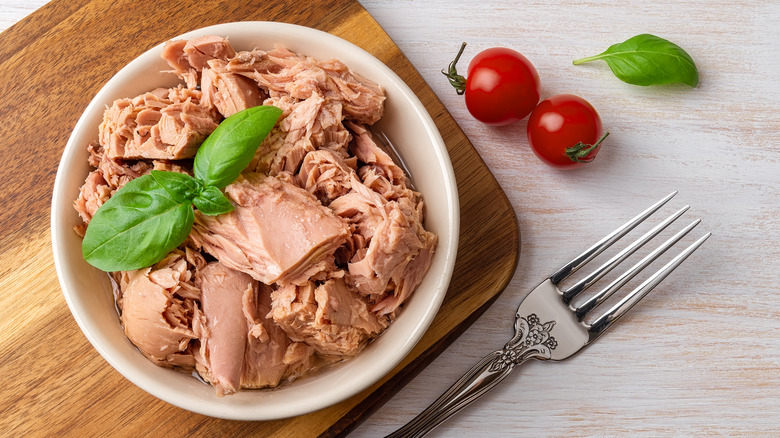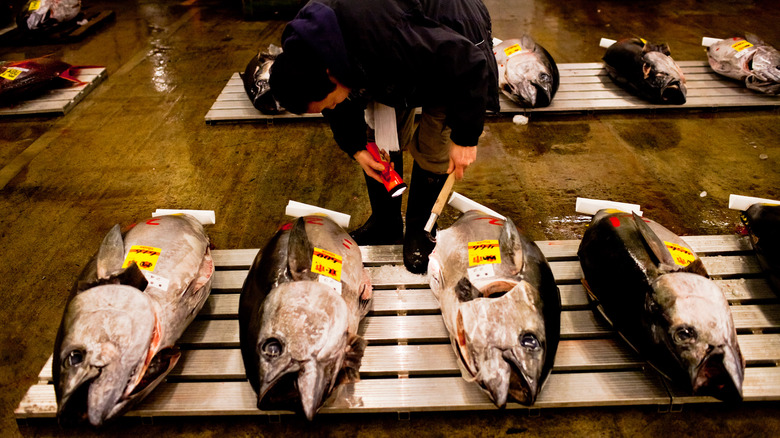How Malta's Tuna Industry Is Trying To Address Its Massive Waste Problem
Tuna is used in a variety of dishes, from sushi to salads to casseroles. WebMD states that tuna is an excellent source of vitamin B12, which can prevent the development of anemia through the production of new red blood cells. Tuna also contains healthy omega-3 fatty acids, which can contribute to lower risks of heart disease. The versatile fish is also a great source of iron, vitamin B6, and potassium.
Malta is the largest producer of tuna in the Mediterranean, according to The Fish Site, catching an average of 12,500 tonnes (the equivalent of around 13,800 tons) of wild tuna each year. However, not all of fish gets used. In fact, according to Malta Today, nearly a quarter of the total fish caught annually has been known to be discarded as waste, which can have major negative impacts on both the environment and the economy.
Thankfully, Malta is shifting their production methods in order to reduce the amount of waste produced each year.
The tuna industry hopes to reduce waste
Malta Today reports that, in order to cut down on the amount of waste, the "leftovers" from wild-caught tuna, which generally include the heads, gills, and fins, will be ground down into a fine, granular consistency to be used in other products. Once processed, the solids are separated from the oils, which can be used in food products for pets or pharmaceutical alternatives, like fish oil pills.
The ground-down leftovers could even be used in beauty products, according to TVM News. Tuna residue was found to be useful in cosmetic products, as collagen is extracted from it. A facility in Ħal Far is expected to process 4,000 tons of tuna residue annually, saving it from being dumped back into the ocean as organic waste. Though there are currently a variety of uses for the leftover product, Malta Today reports that companies hope to find even more uses in the future, eventually refining the tuna into more food products.

